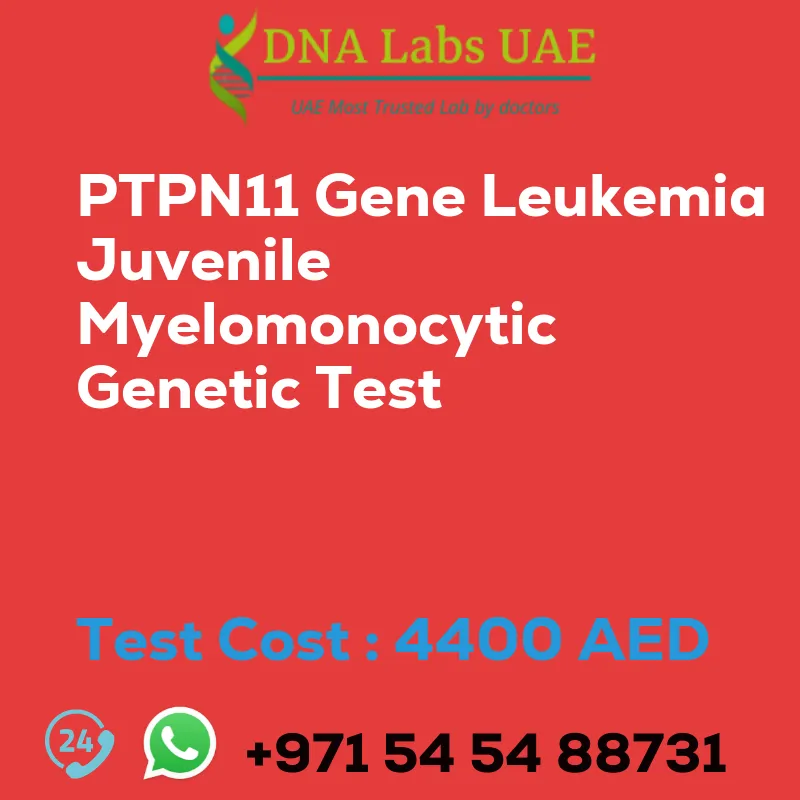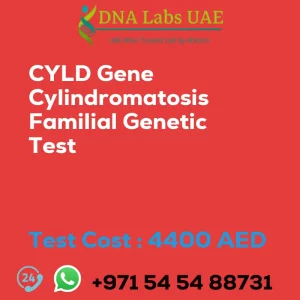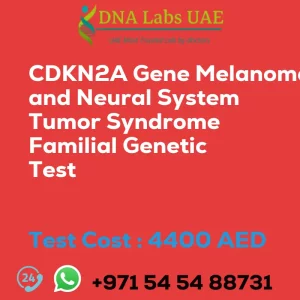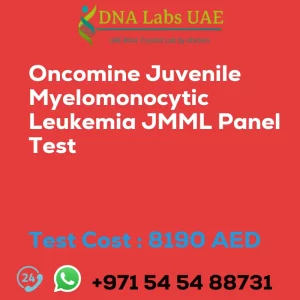PTPN11 Gene Leukemia Juvenile Myelomonocytic Genetic Test
Test Name: PTPN11 Gene Leukemia Juvenile Myelomonocytic Genetic Test
Components: Blood or Extracted DNA or One drop Blood on FTA Card
Price: 4400.0 AED
Report Delivery: 3 to 4 Weeks
Method: NGS Technology
Test Type: Cancer
Doctor: Oncologist
Test Department: Genetics
Pre Test Information: Clinical History of Patient who is going for PTPN11 Gene Leukemia, Juvenile Myelomonocytic NGS Genetic DNA Test. A Genetic Counselling session to draw a pedigree chart of family members affected with PTPN11 Gene Leukemia, Juvenile Myelomonocytic NGS Genetic DNA Test gene PTPN11.
Test Details:
The PTPN11 gene is a gene that encodes for a protein called protein tyrosine phosphatase non-receptor type 11. This protein is involved in the regulation of cell growth and division. Leukemia is a type of cancer that affects the blood and bone marrow. It is characterized by the uncontrolled growth of abnormal white blood cells. There are several different types of leukemia, including juvenile myelomonocytic leukemia (JMML), which primarily affects children.
NGS (Next-Generation Sequencing) genetic testing is a type of genetic testing that uses advanced sequencing technology to analyze multiple genes simultaneously. It can be used to identify specific genetic mutations or alterations that may be associated with certain diseases, including leukemia. In the case of PTPN11 gene leukemia, juvenile myelomonocytic NGS genetic testing would involve sequencing the PTPN11 gene to look for any mutations or alterations that may be present. This can help in the diagnosis and management of JMML, as certain mutations in the PTPN11 gene have been found to be associated with this type of leukemia.
By identifying specific genetic mutations, NGS genetic testing can provide important information about the prognosis of the disease and help guide treatment decisions. It can also be used for genetic counseling and to assess the risk of the disease in other family members. It’s important to note that genetic testing should always be done under the guidance of a healthcare professional, such as a genetic counselor or geneticist, who can interpret the results and provide appropriate recommendations based on the individual’s specific situation.
| Test Name | PTPN11 Gene Leukemia juvenile myelomonocytic Genetic Test |
|---|---|
| Components | |
| Price | 4400.0 AED |
| Sample Condition | Blood or Extracted DNA or One drop Blood on FTA Card |
| Report Delivery | 3 to 4 Weeks |
| Method | NGS Technology |
| Test type | Cancer |
| Doctor | Oncologist |
| Test Department: | Genetics |
| Pre Test Information | Clinical History of Patient who is going for PTPN11 Gene Leukemia, juvenile myelomonocytic NGS Genetic DNA Test. A Genetic Counselling session to draw a pedigree chart of family members affected with PTPN11 Gene Leukemia, juvenile myelomonocytic NGS Genetic DNA Test gene PTPN11 |
| Test Details |
The PTPN11 gene is a gene that encodes for a protein called protein tyrosine phosphatase non-receptor type 11. This protein is involved in the regulation of cell growth and division. Leukemia is a type of cancer that affects the blood and bone marrow. It is characterized by the uncontrolled growth of abnormal white blood cells. There are several different types of leukemia, including juvenile myelomonocytic leukemia (JMML), which primarily affects children. NGS (Next-Generation Sequencing) genetic testing is a type of genetic testing that uses advanced sequencing technology to analyze multiple genes simultaneously. It can be used to identify specific genetic mutations or alterations that may be associated with certain diseases, including leukemia. In the case of PTPN11 gene leukemia, juvenile myelomonocytic NGS genetic testing would involve sequencing the PTPN11 gene to look for any mutations or alterations that may be present. This can help in the diagnosis and management of JMML, as certain mutations in the PTPN11 gene have been found to be associated with this type of leukemia. By identifying specific genetic mutations, NGS genetic testing can provide important information about the prognosis of the disease and help guide treatment decisions. It can also be used for genetic counseling and to assess the risk of the disease in other family members. It’s important to note that genetic testing should always be done under the guidance of a healthcare professional, such as a genetic counselor or geneticist, who can interpret the results and provide appropriate recommendations based on the individual’s specific situation. |








